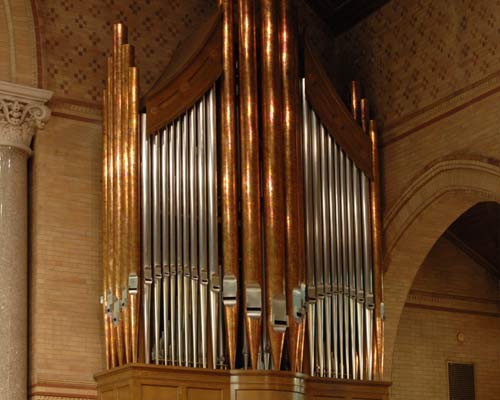Is there a looming shortage of organists?
While the potential for a shortage of clergy is old news to many in church circles, it also seems that the number of organists is dwindling. This also isn’t exactly “news;” a Google search for “church organist shortage” yielded articles going as far back as the 1990s. So what exactly is happening? It seems to be a garden variety of things: children receiving less exposure to music due to the cutting of music programs in schools; declining church attendance; and cultural shifts which have seen the rise of more portable instruments such as guitars, drums and pianos. Even in larger, urban markets, it can be difficult to find an organist who is the right “fit” for a particular church’s music program. A piece which first aired on WAMU, Washington, D.C.’s NPR affiliate, in May of 2017 described the challenge:
“Julie Vidrick Evans is the director of music at Chevy Chase Presbyterian Church located on the D.C.-Maryland line. For the past seven years she had an assistant music director, who also played the organ. When she left for a job in Baltimore, Evans placed an ad for a new organist with the D.C. AGO. She has conducted a few interviews. None of the prospective candidates though have stuck the right chord.
“’A couple of them are missing a personality,’” Evans says.
“Personality is actually critical in this job. In addition to having organ skills, the new hire for this part-time role will be responsible for working with the church’s three separate children’s choirs.
“’Well we’ve had several qualified people. Some are organ performers and don’t have a lot of children’s choir experience,’ Evans says.”
The shortage has hit rural areas particularly hard. This 2016 article, from the Globe Gazette in Mason City, Iowa, is but one example:
“First Christian Church in Mason City has been without a regular organist for a long time, according to church council member Bob Ray.
“’We have a nice organ, all in good condition and ready to go,’ he said.
“Glennis Lee, who played the organ at First Christian for 35 years, died in 2012.
“Ray said the church hired an organist after Lee’s death, but she moved away from the area after about a year.
“It’s not easy to get qualified applicants, according to Ray.”
The general aging of the population may also play a role. A 2017 Baltimore Sun article reported that,
“A 2015 survey by the American Guild of Organists confirmed the picture is bleak and getting worse.
“The organization found that about 60 percent of its 16,000 members were 58 years of age or older. Just 11 percent were younger than 37.
“More than half — 58 percent — had played at the same religious institution for at least 31 years, while only 14 percent had done so for less than a decade.”
However, to paraphrase Monty Python, the organ isn’t dead yet, not by a long shot. The Baptist Press, in describing efforts to promote the instrument in Birmingham, Alabama, noted in April that,
“The [American Guild of Organists] encourages mentoring of students within the church and community. Every year the AGO hosts a Pipe Organ Encounter Advanced Workshop for auditioning high school students across the U.S. The AGO routinely hosts other non-auditioned events to instill greater organ interest.
“Samford [University] also is taking strides to promote more interest in the organ and recently made one of its five-year goals to ‘increase appreciation of the role of the organ in worship — whether as the primary instrument or as an instrument in the band.
“…Summarizing the organ and organist dilemma, [Eric] Mathis [director of The Center for Worship and the Arts at Samford] said, ‘People assume that because there are fewer organists and churches with organs in worship that the organ is dying. The organ is not dying, nor are the organists.'”
(Featured photo: part of the Berghaus organ at St. Stephen’s Pro-Cathedral, Wilkes-Barre, PA. Source: http://ststephenswb.org/wp-content/uploads/2013/01/Berghaus-Organ.jpg)

